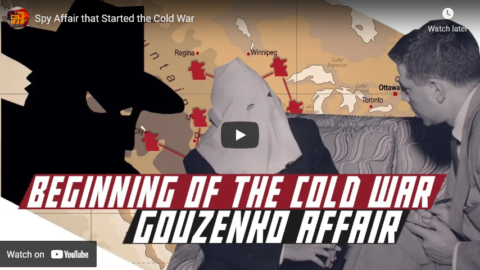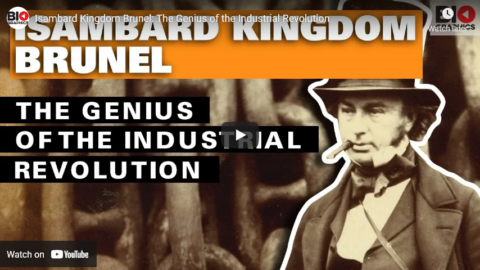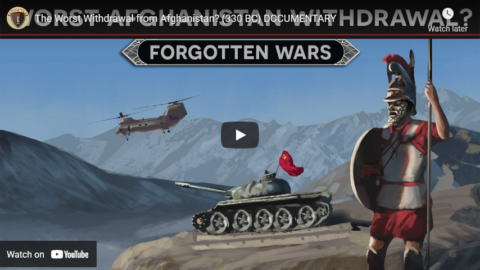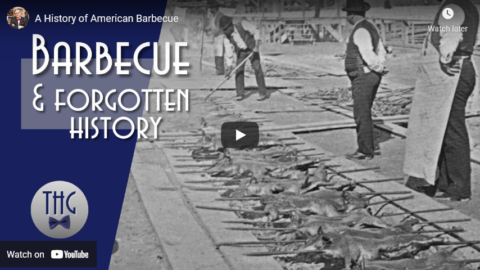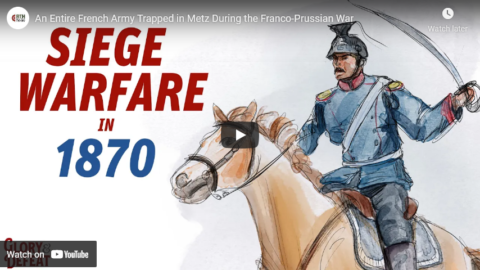The Cold War
Published 3 Aug 2019Our series on the history of the Cold War period continues with a documentary on Gouzenko affair — a spy thriller that provoked the beginning of the Cold War.
Consider supporting us on Patreon: https://www.patreon.com/thecoldwar
August 31, 2021
Spy Affair that Started the Cold War
The Line‘s She-lection Bullshit Bulletin No. 2
Yes, it’s time to publish some of the silliest political bullshit our “leaders” and their parties are slinging around in the federal “she-lection”:
Let’s start with an interesting one.
We’d recommend watching the whole clip (and we’d also note that there’s a second video clip further down in the thread; technical limitations broke one long clip into two shorter ones). But there’s two piles of dung here, and it’s worth breaking them out separately.
The first is, of course, the patented non-answer to a direct question. Glen McGregor asked Trudeau about our people in Afghanistan who were in that very moment in immediate danger. Trudeau talked about something nice he did in 2015. We understand that this is a campaign, but imagine you or someone you love is stuck Afghanistan in now, and the leader of the country is asked about you/them, and that’s the answer? Really?
The second pile of scat is more nuanced. Check out the part of the clip starting at 1:25. Trudeau says that O’Toole and the Conservatives are “promising to end the very program that brought in tens of thousands of Syrian refugees, the very program we’re using to bring in tens of thousands of Afghans fleeing to [safety] in Canada. That doesn’t make sense.”
Well, we mean … it doesn’t make sense because it’s not true.
The Tories are proposing changes to how Canada accepts refugees. Specifically, they want to shift to more heavily rely on privately sponsored refugees, citing research that shows these refugees more easily and more quickly settle into Canada. There would be both government-sponsored and private-sponsored refugees under what the CPC is calling a “joint model” model. This is broken out in the CPC’s campaign platform on page 129.
This seems … pretty reasonable? The Tories are not only promising to maintain current funding levels and numbers of accepted refugees, they just want to structure it differently. Not even very differently, at that: of the 62,000 Syrian refugees that Canada has resettled since Trudeau came to office, half were privately sponsored. The CPC platform also very specifically notes that this wouldn’t apply in “cases of emergency”, which the fall of Afghanistan clearly is. You can criticize that as policy, or even doubt they’ll follow through. Just saying they’ll cancel the program, though, is nonsense.
Of course, Trudeau isn’t the only bullshitter on the campaign trail, so RTWT for the rest of the antics that The Line felt were bullshitty enough to register this week.
Isambard Kingdom Brunel: The Genius of the Industrial Revolution
Biographics
Published 23 Mar 2020Check out Brilliant: https://brilliant.org/biographics
Check out Business Blaze: https://www.youtube.com/channel/UCYY5…
This video is #sponsored by Brilliant.
TopTenz Properties
Our companion website for more: http://biographics.org
Our sister channel TopTenz: https://www.youtube.com/channel/UCQ-h…
Our Newest Channel about Interesting Places: https://studio.youtube.com/channel/UC…Credits:
Host – Simon Whistler
Author – Morris M.
Producer – Jennifer Da Silva
Executive Producer – Shell HarrisBusiness inquiries to biographics.email@gmail.com
Source/Further reading:
Oxford National Dictionary of Biography: https://www.oxforddnb.com/view/10.109…
Interesting podcast on his life: https://www.bbc.co.uk/programmes/b04n…
Britannica: https://www.britannica.com/biography/…
History Today: https://www.historytoday.com/archive/…
The Thames Tunnel: https://www.smithsonianmag.com/histor…
The atmospheric railway: https://www.theguardian.com/science/t…
SS Great Britain accident: https://www.ssgreatbritain.org/about-…
QotD: “It’s not news, it’s irritainment”
“Did you watch the news last night?”
“Yeah, I watched [Tucker Carlson/Rachel Maddow].”
Except that’s not the news. That’s an editorial program where a person gets performatively angry about their opinion of selected bits of news so that you get angry about it along with them … righteously angry enough to sit through an hour’s worth of commercials.
It’s not news, it’s irritainment.
Tamara Keel, “It makes me so mad!”, View From The Porch, 2021-05-25.
August 30, 2021
The Worst Withdrawal from Afghanistan? (330 BC)
Invicta
Published 28 Aug 2021Afghanistan has a long history of foreign invasions and withdrawals. Today we explore the first of these chapters with the campaigns of Alexander the Great. Signup for your FREE trial to Wondrium here: http://ow.ly/C3xs30rNLaU
As the last chapter of the US war in Afghanistan appears to draw to a close, the world watches armed and civilian forces alike conduct their final evacuations. However in these moments we hear echoes of the past. The history of the so-called “Graveyard of Empires” is filled with many chapters that tell of yet another major power that has been forced to withdraw after years of spilled blood and treasure. The most well-known instances have occurred in recent memory. However the pages of Afghan history go back thousands of years. Today I wanted to take a look at one of these first major military withdrawals that may just be the most FUBAR one on record; The evacuation of Alexander the Great’s Macedonian army from Afghanistan.
In order to contextualize this conflict we first begin with a quick overview of the history of Afghanistan. No country existed by that name or with those borders in antiquity and it was instead made up of a variety of tribal coalitions and minor kingdoms for much of its early history. However it would first see foreigners begin to claim its lands with the rise of the Median Empire and the succeeding Achaemenid Empire. The lands of modern Afghanistan would now be carved into a series of Satrapies such as Bactria, Gandara, Arakhosia, Drangaian, and Areia.
Following the Ionian Revolt and the Greco Persian Wars, the Kingdom of Macedon would rise to power and take on this ancestral conflict as a way to unify the Hellenic world behind its rule. Phillip II first began to plan and invasion of the Achaemenid Empire but it would be Alexander the Great who carried out this vision. He would campaign for several years through Anatolia, the Levant, Egypt, and Mesopotamia, consuming vast swaths of the enemy’s domains. However King Darius would escape to the east. Alexander initially pursued the Great King but when he was killed by his own Lieutenant, Bessus, Alexander set off against this traitor.
In this chase, Alexander the Great would be sucked into a multi-year war to subdue the eastern satrapies that made up modern Afghanistan. We cover the most significant events of this campaign, the establishment of occupying forces, and the eventual withdrawal of the army following the death of Alexander the Great. The ensuing settler revolt would make it (in my eyes) one of the most FUBAR Afghanistan withdrawals in history that would certainly be worthy of a Vice news documentary had it existed.
The Campaigns of Alexander the Great by Arrian
In the Footsteps of Alexander the Great by Michael Wood
Alexander the Great and Bactria: The Formation of a Greek Frontier in Central Asia by Frank Holt
The Greeks in Bactria and India by W. W. Tarn
On the revolt of the Greek settlers by DiodorusCredits:
Research: Invicta
Script: Invicta
Narration: Invicta
Artwork: Penta Limited#History
#Afghanistan
#Documentary
Mark Steyn on chocolate soldiers, tutti-frutti generals, and the ice-cream commander-in-chief
When all that matters is not performance but performance art:
On the day that twelve US Marines and some 150 civilians were blown apart by suicide bombers, it was heartening to learn what real heroism is.
Until January 6th, the highlight of Michael Byrd’s “law-enforcement” career was leaving his loaded Glock in a congressional men’s room and paying no price. He “serves” with the grotesquely misnamed “Capitol Police”, which is not a police department but a praetorian guard – a personal security team for the praetors of Congress. Lieutenant Byrd shot and killed Ashli Babbitt, a 5’2″ unarmed woman, because “she was posing a threat to the US House of Representatives”.
All that has been known for months by anyone who wanted to know. The only real news in NBC’s Byrd exclusive was the level of his self-congratulation:
I believe I showed the utmost courage on January 6.
His interviewer, Lester Holt, did not respond: “Er, hang on, isn’t that the kind of thing you’re meant to leave for someone else to say about you?”
And did he have to say “utmost”? Even in as unutterably vulgar an age as ours, is even Michael Byrd incapable of imagining any “courage” greater than his own?
Ah, well, don’t over-think it; it’s just one of those phrases, half-remembered by Byrd from some Rose Garden medal ceremony he caught on TV: “utmost” goes with “courage” like “white” goes with “supremacist” and “domestic” goes with “terrorist”.
America is a land that tends to the utmost in all things. At the end of the nineteenth century, Bernard Shaw popularized the term “chocolate soldier” — the dashing hussar who is useless in battle but looks good in a uniform. We have the tutti-frutti generals: Thoroughly Modern Milley and his chums, whose diversity ribbons from shoulder to scrotum advertise their own utmostness even as they explain why everything going wrong merely demonstrates how everything is going right.
The tutti-frutti generals report to the ice-cream commander-in-chief melting all over the lectern every afternoon. His predecessor was on telly all day every day; Mr Biden was sold to head-in-the-sand Americans as the quiet-life guy who wouldn’t be in your face. Unfortunately, when your countrymen get blown up by government blunders, the citizenry expects him to be in their faces at least every now and then. Across the Atlantic, Boris and the EU chaps were on the screen responding to an all too predictable atrocity. But in the White House Joe Biden’s meds hadn’t yet kicked in — or, conversely, they’d shot him the juice too early and it had worn off. So, as has become familiar, the melting waffle cone was hours late in tottering across the room, squinting into the camera and reading with woozy and wooden defiance. This time he gave it the full Corn Pop:
To those who carried out this attack, as well as anyone who wishes America harm, know this: We will not forgive. We will not forget.
But Joe, a man who cannot reliably name his own Defense Secretary, has already forgotten.
A History of American Barbecue
The History Guy: History Deserves to Be Remembered
Published 29 Jun 2020Different cultures have been roasting meat over a fire since prehistory, but the practice took on special meaning in the United States. The History Guy remembers a brief history of American barbecue.
This is original content based on research by The History Guy. Images in the Public Domain are carefully selected and provide illustration. As very few images of the actual event are available in the Public Domain, images of similar objects and events are used for illustration.
You can purchase the bow tie worn in this episode at The Tie Bar:
https://www.thetiebar.com/?utm_campai…All events are portrayed in historical context and for educational purposes. No images or content are primarily intended to shock and disgust. Those who do not learn from history are doomed to repeat it. Non censuram.
Find The History Guy at:
Patreon: https://www.patreon.com/TheHistoryGuy
Join the History Guy for history trivia at https://www.quizando.com/TheHistoryGuyThe History Guy: History Deserves to Be Remembered is the place to find short snippets of forgotten history from five to fifteen minutes long. If you like history too, this is the channel for you.
Awesome The History Guy merchandise is available at:
teespring.com/stores/the-history-guyScript by THG
#ushistory #thehistoryguy #foodhistory
QotD: “Veneer theory” of human nature
Before the Blitz the consensus was that a little light bombing was all it took to make the wheels come off civilisation. This is based on veneer theory — our good behaviour is a thin veneer laid on our fundamentally selfish, violent nature, and that under pressure our true nature will out.
This turned out not to be true. So spectacularly untrue that we still talk about the Blitz Spirit. With our trademark humility, the British concluded that this was due to our exceptional moral fibre and, with help from the Americans, set about bombing German civilians to hell and back. Regrettably the Germans too responded by pulling together, and working harder in the war effort. Literally no one thinks this was due to their exceptional moral fibre. Instead, it seemed that crisis led to teamwork. Bregman is able to quote similar behaviour on the Titanic, on September 11th and in the aftermath of Hurricane Katrina.
Despite this mountain of evidence, veneer theory is still overwhelmingly believed. In 1951 William Golding wrote Lord of the Flies — a book about how a group of British boys crash-landed on a Pacific island would really behave. They start with ideals of co-operation, but quickly descend to violence and anarchy. Weeks later when they’re rescued half of them are dead. The book became a massive best seller, and a much-studied classic. For those who lived through World War I, World War II, and were now watching communism demonstrate that you didn’t even need an enemy to slaughter tens of millions, you can see the appeal of a cynical view of human nature. However it is pure fiction. In 1966 Lord of the Flies happened for real — 6 teenagers went for a joy ride in a fishing boat, got swept out by a storm and washed up on an inhospitable island in the Pacific. When they were found 11 months later, they were all alive and healthy. They had survived by fortitude, resourcefulness and above all, teamwork.
An anonymous reviewer, “Your Book Review: Humankind”, Astral Codex Ten, 2021-05-28.
August 29, 2021
Justin Trudeau discovers for himself the truth of Harold Macmillan’s dictum on the most difficult thing about being Prime Minister
Former British Prime Minister Harold Macmillan was asked what was the most difficult thing about his job and is reported to have said, “Events, my dear boy, events.” Justin Trudeau had everything he wanted in the Canadian political situation in early August so he put his early election plans into action … and along came those unpredictable events:

“2019 Canadian federal election – VOTE” by Indrid__Cold is licensed under CC BY-SA 2.0
What would have happened in the election of 2021 if Afghanistan hadn’t fallen? If the writ had been drawn up just a few weeks before, or a few weeks after August 15, the day Kabul fell to the Taliban?
This is the sort of question political science nerds will debate over weak beer for decades to come. It’s no great mystery why the Liberals went forward with the election even as armed fighters began to stream into the capital city of a country in which Canadians have sacrificed so much time, blood and treasure.
But I can picture the scene in the war room now and the logic is inescapable. The meeting with the governor general had been set, the news leaked, the campaign messaging laid out, the suits pressed and the planes booked. Besides, as we all know: “nobody cares about foreign affairs.” That old cant, repeated, like a charm.
Most of the time, it’s true.
Canadians hadn’t thought about Afghanistan for a decade. We’d all stopped paying any mind to some poor nation on the dark side of the world, that disputed chunk of mountain and desert besieged by misery and war since the time of Alexander the Great.
Nobody cares about such things. Until they do.
And what’s the difference between a foreign affair that we care about, and one that we do not? The answer is not flattering. We are selfish and solipsistic creatures. We care about current events abroad when what’s happening has some connection to ourselves or our interests — or when the news reflects something about ourselves.
I would not be the first pundit to point out the parallel between the fall of Kabul and the death of Alan Kurdi, the three-year old Syrian refugee boy whose body washed ashore after drowning in the Mediterranean Sea in September of 2015, in the midst of the federal election that brought Justin Trudeau to power. That child’s doll-like body, face-down on a beach, destroyed us, and the tragedy was made more pointed with the discovery that his family had been trying to reach Canada. And that his asylum application had been rejected by officials in Stephen Harper’s government.
In our own bureaucratic nightmare, and Harper’s dispassionate response, we saw reflected our own lack of compassion.
What we are confronting now in Kabul is our lack of competence.
Yamamoto: Midway Round Two? – World War Two – 157 – August 28, 1942
World War Two
Published 28 Aug 2021The Battle of the Eastern Solomons takes place this week — another carrier battle. As for the Germans, they’re advancing on Stalingrad, slowing down in the Caucasus, and Erwin Rommel is preparing to launch another assault in North Africa.
(more…)
The competing English and Dutch East India companies
In his latest Age of Invention newsletter, Anton Howes considers the odd fact that although the Dutch were the last major seafaring power to extend to the East Indies, they quickly became the most powerful European traders and colonialists in the region:
By the mid-seventeenth century, although the trans-Atlantic trades were still almost entirely in the hands of the Spanish, the European trade to the Indian Ocean had come to be dominated by the Dutch — which is quite surprising, as they had arrived so late. The high-value exports of the Indian Ocean — particularly pepper — had anciently arrived via the Red Sea, the Persian Gulf, or overland, and then been bought up in Egypt or Syria by the Venetians and Genoese, who then sold them on to the rest of Europe. It was then the Portuguese who had supplanted that trade in the late fifteenth century by discovering the direct route to the Indian Ocean around the Cape of Good Hope. The Portuguese monopolised the new sea route around Africa for a century, almost totally undisturbed by other Europeans, entrenching their position by building forts — occasionally with the permission of local rulers, but often without.
The Portuguese seem to have spread the rumour in Europe that they had effectively conquered the entire region, presumably to dissuade others from even trying to break their monopoly. Even as late as the 1630s, when other nations were already regularly trading there, foreign writers took the time to mock such assertions. As the Welsh-born merchant Lewes Roberts put it, the Portuguese “brag of the conquest of the whole country, which they are in no more possibility entirely to conquer and possess, than the French were to subdue Spain when they possessed of the fort of Perpignan, or the English to be masters of France when they were only sovereigns of Calais.” Quite.
[…]
But for all their tardiness, the Dutch arrival in the Indian Ocean was dramatic. The English may have been the first to threaten the Portuguese monopoly, but in the whole of the 1590s they sent a mere two expeditions out east, and in 1600-10 sent only a further eight (seven by the newly-chartered East India Company (EIC), with a monopoly over English trade with the region, and another voyage licensed to break that monopoly in 1604 by the king, which unhelpfully spoiled the company’s relations with local rulers by turning pirate and plundering Indian and Chinese ships). What the English sent out over the course of twenty years, the Dutch exceeded in just five. Between just 1598 and 1603, after the successful return of de Houtman’s first voyage, they sent out a whopping thirteen fleets — and this despite their merchants not even pooling their efforts like the English had until the very end of that period, when in 1602 the various small and city-based Dutch companies were merged to form a single, national joint-stock monopoly, the Verenigde Oost-Indische Compagnie (VOC). The founding of the VOC accelerated the divergence. Between 1613 and 1622 the EIC sent out a paltry 82 ships compared to the VOC’s 201.
The sheer quantity of Dutch ships heading for the Indian Ocean meant that they were soon dominant amongst the European merchants there, capturing forts from the Portuguese, founding further bases of their own, and able to forcibly keep the English out — sometimes by attacking the English directly, other times by simply threatening any of their would-be trading partners. The steady stream of Dutch ships also allowed them to resupply and maintain their factors — the key infrastructure of long-distance commerce, as I explained in last week’s post for subscribers. They were able to have a presence, and project force, in a way that the English could not. By 1638, Lewes Roberts, despite often lauding England’s commercial achievements, and being an EIC official himself, had to concede that in the Indian Ocean “the English nation are the last and least”.
That English weakness was reflected in how EIC merchants had to comport themselves in the region so as to have any share in the trade at all. Despite the EIC’s later reputation for bloodthirsty rapaciousness, in the early seventeenth century they were highly reliant on good relations with the locals. Whereas the Dutch could often afford to use force and bear the repercussions, the English more or less only held on in the early days by ingratiating themselves with local rulers — often by finding common cause against the aggressive and domineering Dutch. The infrequently-supplied English factors were often heavily indebted to local merchants too, including the Indo-Portuguese — a group that they often married into, for access to social networks and support. As the historian David Veevers argues in a new overview of the early EIC (a relatively pricey academic book, but compellingly argued and juicy with detail), the English often went further than just friendliness or integration, subordinating themselves to local rulers too. Of the few early forts that the English managed to establish, for example, that at Madras in 1640 was only built because the local ruler encouraged it, treating the English there as his vassals.
MP-28: Hugo Schmeisser Improves the MP18
Forgotten Weapons
Published 22 Aug 2017The MP28,II was Hugo Schmeisser’s improved take on the original World War One MP18,I design. It used a simple box magazine in place of the Luger drum magazines, and this magazine would form the basis for a long series of military SMG magazines. It was a double-stack, single feed design because Schmeisser thought this would prevent some malfunctions that were possible with double-feed magazines (and because Mauser probably had a patent on the double feed box magazine at the time). This magazine would be used in conversions of MP18 guns, and would also be the model for the MP-38/40 and subsequent British Sten gun magazines.
The MP28 also introduced a semiautomatic selector switch, where the MP18 had been a fully automatic-only design. It is the presence of this selector button over the trigger, along with a tangent sight instead of a simple flip-up notch that can be used to distinguish between an updated MP18 and an MP28.
While the MP28 was not formally adopted by the German military, it was used by police and SS units, as well as being adopted or copied by a wide selection of other nations, including Portugal, Spain, China, Japan, and Ethiopia.
http://www.patreon.com/ForgottenWeapons
Cool Forgotten Weapons merch! http://shop.bbtv.com/collections/forg…
If you enjoy Forgotten Weapons, check out its sister channel, InRangeTV! http://www.youtube.com/InRangeTVShow
QotD: “LEEEERRRROOOYYYY JEEEEENNNNKIIIIINS!”
Would it be confessing too much to admit that one of my generation’s formative moments happened in the massively multiplayer online role-playing game World of Warcraft?
The year was 2005, and a diverse collection of mages and warriors were about to storm a mythical castle swarming with flying dragon-like creatures, particularly deadly to their guild. Like true and proper nerds, they met beforehand to discuss their strategy, and with all the detached analysis of a corporate board discussing the latest results of a focus group convened to discuss a brand refresh.
“Christ. OK. Well what we’ll do I’ll run in first, gather up all the eggs,” the leader begins. “I will use Intimidating Shout to kind of scatter them so they don’t have to fight a whole bunch of them at once. When my shout is done, I’ll need Anthony to come in and drop his shout too so we can keep them scattered.
“We’re going to need Divine Intervention on our mages … it is a pretty good plan. We should be able to pull it off this time. What do you think, Abdul? Can you do a number crunch real quick?”
The resident numbers guy responds: “Uh, yeah, give me a second. I’m coming up 32.33 — repeating, of course — percentage of survival.”
“Ah, that’s a lot better than what we usually do …”
Then one of the guild’s resident numbnuts breaks into this dull planning.
“Thumbs up. Let’s do this.
“LEEEERRRROOOYYYY JEEEEENNNNKIIIIINS.”
“Oh my God, he just ran in.”
His team dutifully follows … and proceeds to get slaughtered by the dragon things.
“Goddamnit, Leeroy. You moron.”
Whether or not the scene was staged is irrelevant. The guild, “Pals for Life”, may have died in that fight, but glory lives forever. Or, at least, meme glory does. It was a perfect encapsulation of what happens when the best-laid plans come to nothing, when life goes pear shaped, when the odds are bad so, fuck it, you storm the castle anyways.
Jen Gerson, “Alberta goes Leeroy Jenkins on Summer”, The Line, 2021-05-28.
August 28, 2021
Flagging enthusiasm
In Friday’s NP Platformed newsletter, Colby Cosh considers the suddenly politically relevant position of the Canadian flag:
The other day, Conservative Leader Erin O’Toole made mention of the fact that the Canadian flag atop the Peace tower in Ottawa has been flying at half-staff for almost three months and that as prime minister he would put it back up — countermanding the specific order Justin Trudeau gave on May 30. O’Toole’s remark was a brief one dropped in at the end of a longer statement, but he did say we should be proud of our flag, which some people still think of as a Liberal contrivance, and he made the point that being proud of Canada goes hand in hand with wishing to improve it.
I saw this the other day and commented on social media that “I expect the Canadian dying media to be All. Over. This. — Conservative leader Erin O’Toole just called for the Canadian flag to be raised (they’ve been at half-staff officially since the end of May). If the media have their way, this will guarantee a huge majority government for their crush, Justin Trudeau.”
I admit, this was a bit glib, and not all the Canadian media are in the tank for Justin, but (as the old joke about lawyers had it) the 90% give the other 10% a bad name.
First of all, if sticking up for the proper display of the flag counts as wrapping oneself in it, doesn’t using it for gestures of regret (or the dreaded “virtue signalling”) really qualify as the mirror image of this? Trudeau made a point of making sure we knew the lowering of the flag was his own initiative. Liberals have spent a couple of generations working their asses off to constantly remind us that it’s a Liberal flag, which is precisely why conservatives in Ontario towns starting with “B” love the Red Ensign. It is natural to wonder whether, given the apparent Liberal sensitivity about our blood-soaked banner, we won’t get a third national flag before everyone’s finished adapting to the second one. […]
Canada is a place where literal Conservatives can’t “wrap themselves” too tightly in the literal flag: this isn’t the United States, where the positioning and context of the flag in ads or on stage will let you know instantly whether you’re at a Republican or a Democratic event. (The presence of an eagle is always a good clue.) Yet our Liberals have manoeuvred themselves into a position, somehow, in which it is awkward to fly the flag too high.
Can Trudeau now set a date for the raising of the flag to its position of respect and dignity, having plumb forgotten to do so in the first place? And if he is the renewed choice of the Canadian people as prime minister, will he be able to hoist the thing back up? Will this happen the day after the election? The first week? After prolonged consultations with First Nations, perhaps involving a royal commission?
You see, there is an aspect to this that goes beyond politicians battering at one another with flagpoles and other national paraphernalia. O’Toole’s comment didn’t just remind us that we’re Canadians and we should like our flag. It reminded us that we have a government that often seems to have a big problem thinking 30 seconds ahead, let alone six months.
An Entire French Army Trapped in Metz During the Franco-Prussian War
realtimehistory
Published 26 Aug 2021Sign up for Curiosity Stream and get Nebula bundled in and SAVE 26%: https://curiositystream.com/realtimeh…
The French Army of the Rhine under Marshal Bazaine is trapped inside Metz — along with civilians and wounded over 250,000 people will need to be fed from the city’s dwindling supplies. Surrounding the city is a German Army that cannot force the Metz fortifications and opts for starving it into submission instead.
» THANK YOU TO OUR CO-PRODUCERS
John Ozment
James Darcangelo
Jacob Carter Landt
Thomas Brendan» OUR PODCAST
https://realtimehistory.net/podcast – interviews with historians and background info for the show.» LITERATURE
Arand, Tobias: 1870/71. Der Deutsch-Französische Krieg erzählt in Einzelschicksalen. Hamburg 2018Bourguinat, Nicolas/Vogt, Gilles: La guerre franco-allemande de 1870. Une histoire globale. Paris 2020
Gouttman, Alain: La grande défaite de 1870-1871. Paris 2015
Herre, Franz: Eugénie. Kaiserin der Franzosen. Stuttgart, München 2000
Milza, Pierre: L’année terrible. Paris 2009
Schikorsky, Isa (Hrsg.): “Wenn doch dies Elend ein Ende hätte”. Ein Briefwechsel aus dem Deutsch-Französischen Krieg 1870/71. Köln, Weimar, Wien 1999
» SOURCES
Bazaine, François-Achille: Episoden aus dem Kriege von 1870 und der Belagerung von Paris. Berlin 1884Bazaine, François-Achille: Feldzug des Rhein-Heeres vom 12. August bis 28. Oktober 1870. Leipzig 1872
Großer Generalstab (Hrsg.): Der Deutsch-Französische Krieg, 1870–71. Bd. 1–3. Berlin 1874 ff.
Historischer Verein der Höhen von Spicheren des 67. Kaiserlichen Linienregiments der Infaterie (Hrsg.): Das Kriegstagebuch von Clovis Hardy. Soldat im 63. Linienregiment. Deutsch-Französischer Krieg 1870/71. Vom Lager in Châlons bis nach Ansbach in Bayern. O.O. [Esvres] O.J. [2011]
Sternegg, Johann Khoss von: Schlachtenatlas des XIX. Jahrhunderts. Leipzig 1886
» OUR STORE
Website: https://realtimehistory.net»CREDITS
Presented by: Jesse Alexander
Written by: Cathérine Pfauth, Prof. Dr. Tobias Arand, Jesse Alexander
Director: Toni Steller & Florian Wittig
Director of Photography: Toni Steller
Sound: Above Zero
Editing: Toni Steller
Motion Design: Philipp Appelt
Mixing, Mastering & Sound Design: http://above-zero.com
Maps: Battlefield Design
Research by: Cathérine Pfauth, Prof. Dr. Tobias Arand
Fact checking: Cathérine Pfauth, Prof. Dr. Tobias ArandChannel Design: Battlefield Design
Contains licensed material by getty images
All rights reserved – Real Time History GmbH 2021

